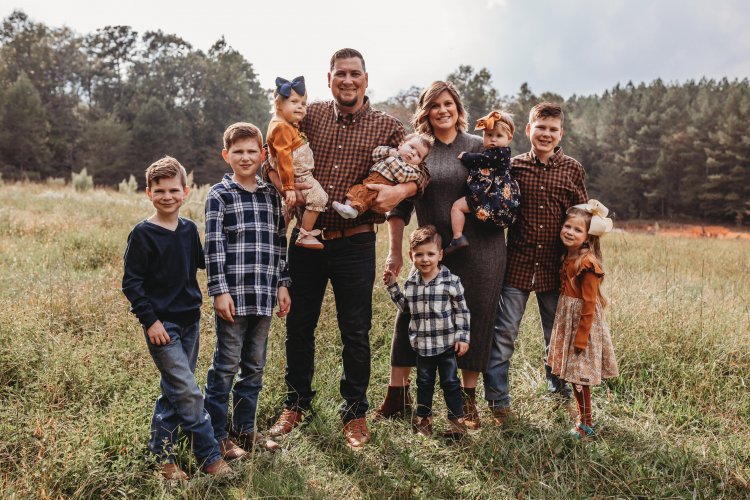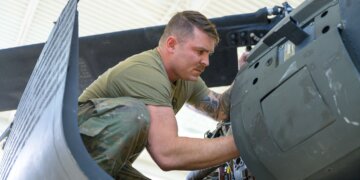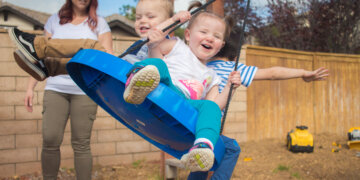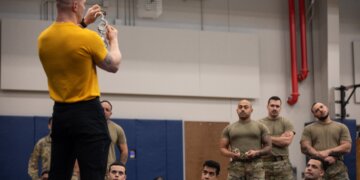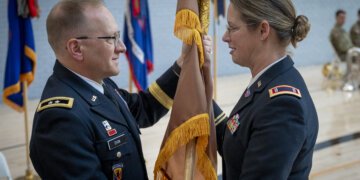South Carolina National Guard Staff Sgt. Christian Miller had seen hundreds of corpses through his civilian paramedic job. So as he gazed upon an adoption listing photo of a lifeless-looking Ukrainian baby, he told his wife Megan his first thought: “That child is dead.”
Today, 4-year-old Elsie is quite alive ― and thriving with the Millers, their six biological children and Lottie, a 5-year-old also adopted from Elsie’s orphanage at the same time.
“These two have had a life in just a year that they never would have experienced in Ukraine,” Miller said. “Children deserve basic rights, and we have been able to give them a life where they can thrive and grow, get the medical treatment they need and the simple nutrition they deserve.”
Surprises in store
Elsie and Lottie both have Down syndrome. Their biological families ― with whom the Millers keep in touch ― placed them for adoption at birth. Ukraine has few resources for citizens with disabilities or in hard circumstances, translating into more than 105,000 children in state-run institutions around the country. Nearly all of these “orphans” still have one or both parents.
Megan had wanted to adopt for a decade, but Miller was dead set against it. She was determined, however, and began praying. Miller said God eventually broke his heart over the plight of so many children waiting for families. After watching some friends walk through international special needs adoption, the couple decided to follow.
RELATED: Florida guardsmen shuffled out of Ukraine amid engagement preparations
The Millers committed to adopt from Ukraine in September 2020. They were shown a video of Lottie (“It was like the whole Sarah McLaughlin soundtrack in the background, and it’s like, why am I crying?” Miller joked) and the photo of Elsie sleeping.
In February 2021, Megan wasn’t feeling well. Miller teased her that she either had COVID-19 or was pregnant with their sixth biological child.
It was both. The Millers healed, traveled to Ukraine when Megan was 36 weeks pregnant, came back the next week to give birth to a boy named Gaines, then returned to Eastern Europe less than a month later in August for pickup. Miller and Megan, in other words, added three children to their family in three weeks.
“Lottie had track marks in her arms when we brought her home,” Miller said, from sedatives given to her in the orphanage. “Elsie was pouring diarrhea, so sick and so lost.”
Joy & chaos in Ukrainian adoption
Those memories are still fresh ― as is the recollection of their trip home. Elsie was hovering near death; the Ukrainian airport was “170 degrees,” Miller swore; newborn Gaines was hungry and screaming; and Lottie was a feral animal. At one point, she ripped not only her new father’s mask off, but also his mustache while banshee-wailing. People around them, unaccustomed to seeing children with disabilities in public, glared.
“It was a fleeting five minutes of sheer chaos that about scared the life out of both of us,” Miller said.
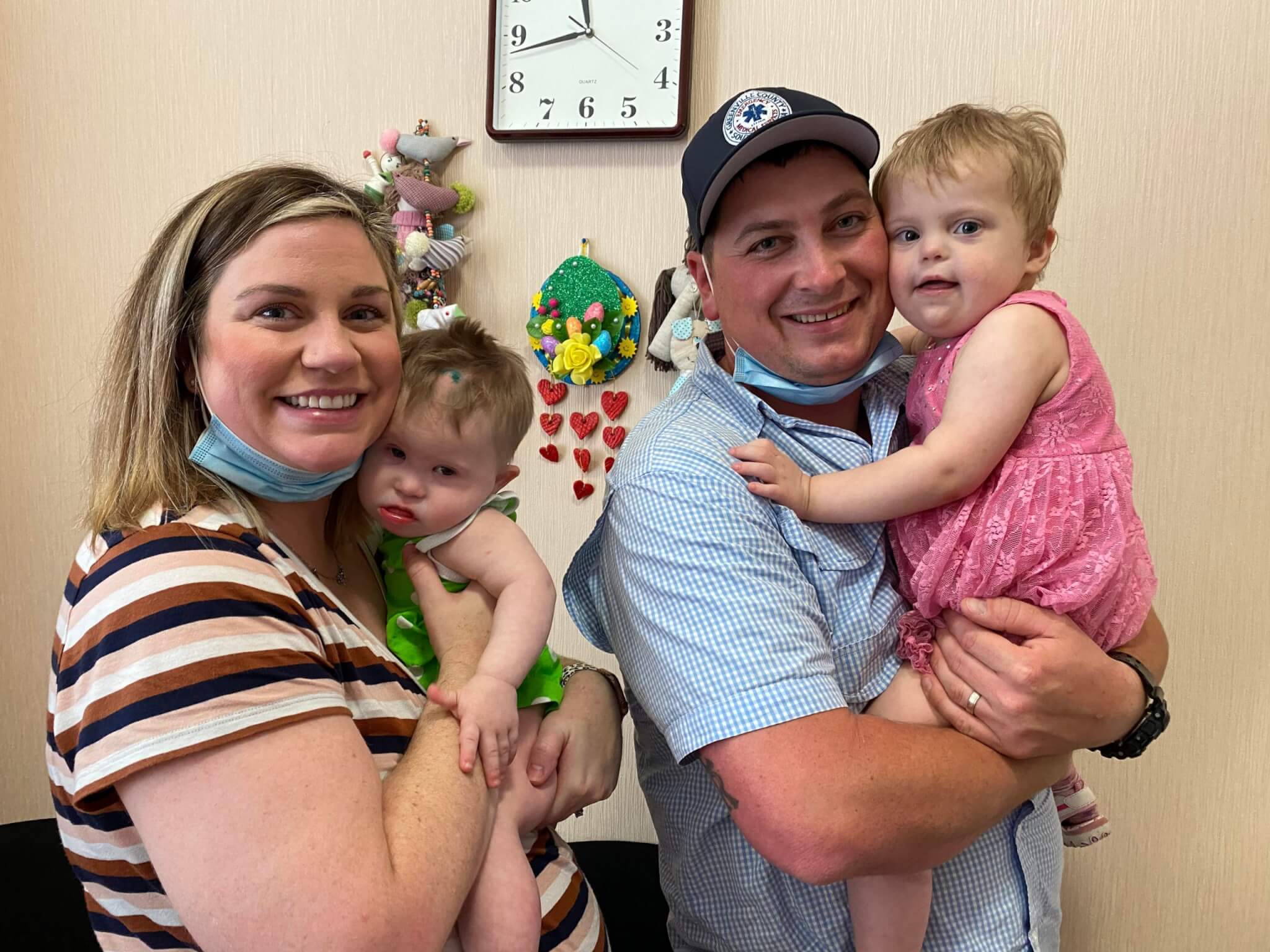
Megan, just three weeks postpartum, agreed.
“We looked at each other and thought, ‘Did we just make a mistake?’” she said. “It was hard.”
Upon landing in the states, the challenges continued. The Millers took Elsie straight to the hospital. She had refeeding syndrome, infections and airway concerns, but after weeks under doctors’ care, the toddler pulled through.
“Elsie is all smiles now,” her father said. “She truly is just a happy-go-lucky girl.”
Lottie, meanwhile, can now walk, eat on her own, uses sign language and “loves very hard,” Miller said. Both girls became fluent in English only a few months after coming home.
The Miller house now holds eight children from ages 12 down to 1 ― and more might be coming. The couple is currently waiting for Ukraine to resume international adoptions post-invasion so they can adopt again. Miller’s National Guard unit, he said, has been incredibly understanding, helping out with the family’s fundraisers, making donations and allowing flexibility in Miller’s work schedule.
“For me, this is exactly what the military was designed to do: protect those who cannot protect themselves,” Miller said. “This life we’ve chosen is difficult at times, but these children need families who care about them.”



